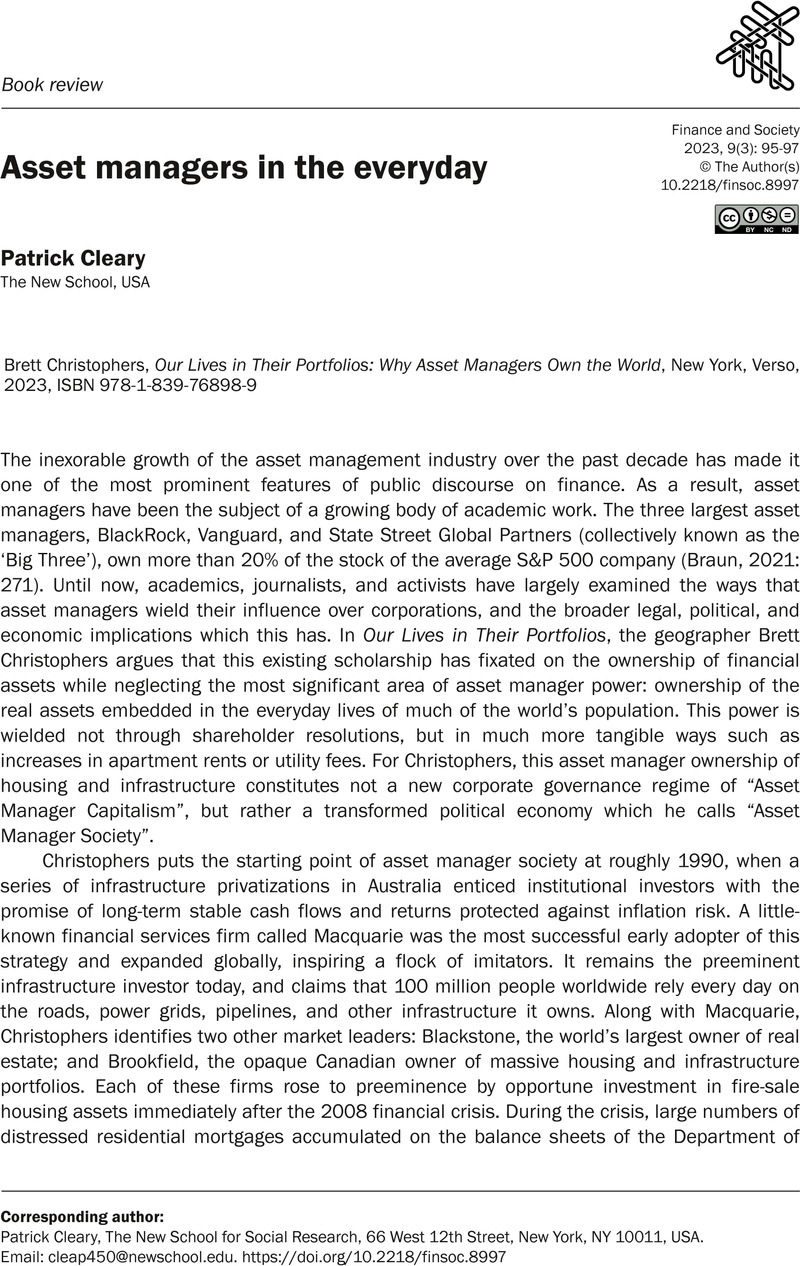No CrossRef data available.
Article contents
Asset managers in the everyday - Brett Christophers, Our Lives in Their Portfolios: Why Asset Managers Own the World, New York, Verso, 2023, ISBN 978-1-839-76898-9
Review products
Brett Christophers, Our Lives in Their Portfolios: Why Asset Managers Own the World, New York, Verso, 2023, ISBN 978-1-839-76898-9
Published online by Cambridge University Press: 09 November 2023
Abstract
An abstract is not available for this content so a preview has been provided. As you have access to this content, a full PDF is available via the ‘Save PDF’ action button.

- Type
- Book review
- Information
- Finance and Society , Volume 9 , Issue 3: Volatility in finance, art, and culture , 2023 , pp. 95 - 97
- Creative Commons
- This is an Open Access article, distributed under the terms of the Creative Commons Attribution-NonCommercial-No Derivatives licence (http://creativecommons.org/licenses/by-nc-nd/4.0/), which permits noncommercial re-use, distribution, and reproduction in any medium, provided the original work is unaltered and is properly cited. The written permission of Cambridge University Press must be obtained for commercial re-use or in order to create a derivative work.
- Copyright
- © 2023 The Author(s)
References
Braun, B. (2021) Asset manager capitalism as a corporate governance regime. In: Hacker, J., Hertel-Fernandez, A., Pierson, P. and Thelen, K. (eds.), The American Political Economy: Politics, Markets, and Power. Cambridge: Cambridge: Cambridge University Press, 270–94.Google Scholar
Christophers, B. (2023) Our Lives in Their Portfolios: Why Asset Managers Own the World. New York: Verso.Google Scholar
Prag, A., Rottgers, D., and Scherrer, I. (2018) State-owned enterprises and the low-carbon transition. OECD Environment Working Papers, 129. https://doi.org/10.1787/19970900Google Scholar




